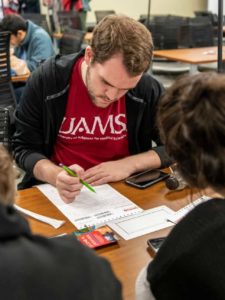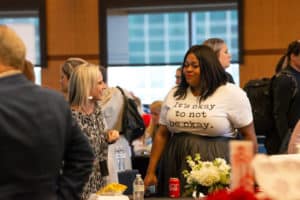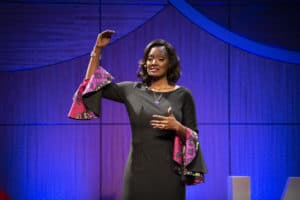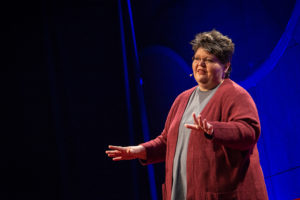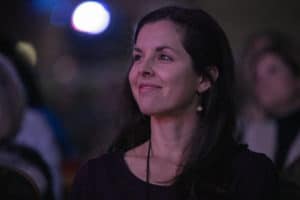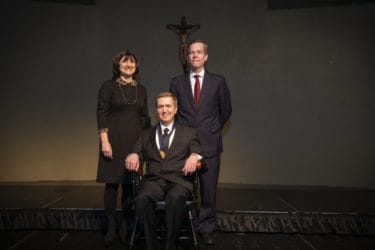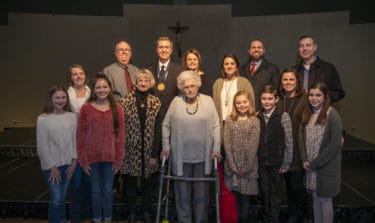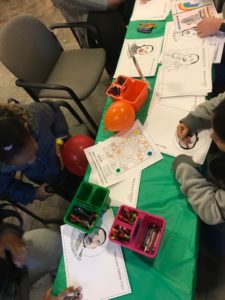For the past four years, second-year medical students in the UAMS College of Medicine have called on students in the class behind them to pay it forward as they learn about blood cancers and other diseases that can make a bone marrow transplant a lifesaver.
Year after year, COM freshmen have delivered.
Sophomore Madison Caldwell organized the fourth-annual bone marrow registry drive for freshmen as first-year students completed their hematology/oncology course on Feb. 5. Her classmates Cole Howie, Emily Lorince and Elliot Taylor assisted, helping to distribute the paperwork and sterile swabs students used to collect their own saliva samples.

“Many blood disorders and blood-associated malignancies require bone marrow transplant for treatment, and sometimes bone marrow transplants can be curative for these diseases,” Caldwell explained after the drive. “However, because of our diverse gene pool, it can be difficult to find a match for a patient’s bone marrow. The more people who register to donate bone marrow, the more likely it is that these patients will be able to find a match.”
In fact, at least three UAMS medical students have gone on to donate life-saving bone marrow after registering in drives on campus or elsewhere in previous years.
“The M1s (freshmen) are best able to grasp the importance of bone marrow transplant as they learn about hematology-oncology, which is why we hold the annual registration drive for them,” she said. “I volunteered to lead this year’s drive because I discovered how important bone marrow transplants and the registry are as an M1. This is also a great way to get involved with the M1 class.”
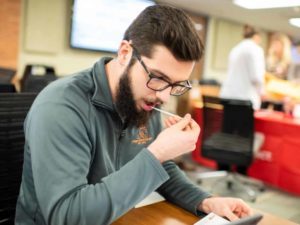
There’s no doubt the tradition will continue. Freshman Chelsea Smith lent a hand this year and plans to lead the drive for next year’s M1s. For her, the opportunity to help future blood cancer patients is personal.
“I had acute lymphoblastic leukemia as a kid, and even though I didn’t need a bone marrow transplant, I saw the difference they made in the lives of other cancer patients,” Smith said. “Experiencing these situations firsthand is very impactful and life-changing.
“We can easily become desensitized to leukemia and lymphoma when studying these diseases academically, and I hope that registering and potentially volunteering to donate bone marrow made leukemia and lymphoma a bit more personally relevant to the med student community. I loved seeing so much participation from my class.”
More than 50 students registered during the drive, and students noted that many other classmates had actually registered at previous drives while in college or through other opportunities.
“I registered at UCA (University of Central Arkansas) four years ago,” freshman Kelley Broadbent said as she kept classmate Austin Squires company while he swabbed the inside of his cheek to collect a sample. “Like many others, I have had a personal impact with cancer, an aunt who struggled and wasn’t able to get a bone marrow transplant,” Broadbent said. “It’s important to be that person who makes a difference for someone else if you can.”
Squires agreed. “This is a chance to potentially help someone with a serious illness, and registering and donating if you match is not that big of a deal,” he said. “If you can save a life, that is pretty cool.”
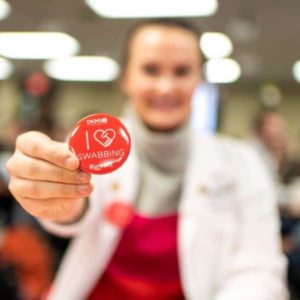
The UAMS drives were coordinated through DKMS, an international nonprofit bone marrow donor center affiliated with the National Bone Marrow Donor Program.

